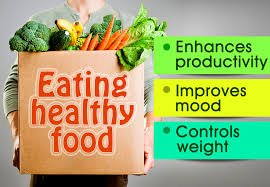Introduction
When we talk about Eating Unhealthy Foods, we’re referring to those that are high in things like sugars, unhealthy fats, and additives. These foods might taste good, but they’re not doing your body any favors. In fact, they can lead to a whole host of health problems if consumed regularly. Let’s take a closer look at what these foods are and how they impact your health.
What Makes Foods Unhealthy?
Unhealthy foods are typically low in essential nutrients and high in things like sugars, unhealthy fats, and sodium. They often contain additives and preservatives that can be harmful to your health in the long run. While it’s okay to indulge in these foods occasionally, making them a regular part of your diet can have serious consequences.
The Impact on Your Health
Weight Gain and Obesity
One of the most obvious effects of consuming unhealthy foods is weight gain. Foods that are high in sugars and unhealthy fats can pack on the pounds quickly if you’re not careful. Over time, this can lead to obesity, which is associated with a whole host of health problems, including heart disease, diabetes, and joint pain.
Heart Disease
Unhealthy foods can also take a toll on your heart health. Foods that are high in unhealthy fats, cholesterol, and sodium can raise your risk of heart disease. They can lead to high cholesterol levels, high blood pressure, and the buildup of plaque in your arteries, all of which can increase your risk of heart attack and stroke.
Type 2 Diabetes
Regularly consuming foods that are high in sugars can also increase your risk of developing type 2 diabetes. When you eat a lot of sugary foods, your body has to produce more insulin to keep your blood sugar levels in check. Over time, this can lead to insulin resistance, which is a precursor to type 2 diabetes.
High Blood Pressure
Foods that are high in sodium can raise your blood pressure levels. This puts added strain on your heart and blood vessels, increasing your risk of heart disease and stroke. Cutting back on foods that are high in sodium can help lower your blood pressure and reduce your risk of these serious health conditions.
Digestive Issues
Unhealthy foods are often low in fiber, which can lead to digestive issues like constipation, bloating, and irritable bowel syndrome. Eating a diet that’s high in processed foods and low in fruits and vegetables can wreak havoc on your digestive system, making it difficult to maintain regular bowel movements.
Nutrient Deficiencies
When you fill up on unhealthy foods, you’re not getting the nutrients your body needs to function properly. This can lead to nutrient deficiencies, which can weaken your immune system, impair your cognitive function, and increase your risk of chronic diseases like osteoporosis and anemia.
Dental Problems
Foods that are high in sugars and acids can also wreak havoc on your oral health. When you consume a lot of sugary foods, the bacteria in your mouth feed on the sugars and produce acids that can erode your tooth enamel, leading to cavities and tooth decay.
Mood Swings and Fatigue
Finally, consuming a diet that’s high in sugars and unhealthy fats can also take a toll on your mental health. These foods can cause fluctuations in your blood sugar levels, which can lead to mood swings, irritability, and fatigue. They can also leave you feeling sluggish and lethargic, making it difficult to concentrate and stay focused throughout the day.
Examples of Unhealthy Foods
Now that we’ve talked about the impact that unhealthy foods can have on your health, let’s take a look at some examples of these foods:
- Processed Foods: Things like chips, cookies, and frozen dinners are often high in unhealthy fats, sugars, and additives.
- Fried Foods: Fried foods like french fries, fried chicken, and onion rings are loaded with unhealthy fats and calories.
- Sugary Beverages: Sodas, energy drinks, and fruit juices are packed with sugars and empty calories.
- Trans Fats: Foods that contain trans fats, such as margarine and packaged snacks, can raise your bad cholesterol levels and increase your risk of heart disease.
- Highly Processed Meats: Processed meats like bacon, sausage, and deli meats are often high in sodium and unhealthy fats.
- White Bread and Pasta: These refined grains lack the fiber and nutrients found in whole grains, leading to spikes in blood sugar levels and weight gain.
- Highly Salted Foods: Foods that are high in sodium, such as canned soups and salty snacks, can raise your blood pressure and increase your risk of heart disease.
The Importance of Healthy Eating Habits
Given the negative impact that unhealthy foods can have on your health, it’s important to prioritize healthy eating habits. This means filling your plate with plenty of fruits, vegetables, whole grains, lean proteins, and healthy fats. These foods are packed with essential nutrients that your body needs to thrive, and they can help protect you against a wide range of health problems.
Conclusion
Unhealthy foods might taste good, but they’re not doing your body any favors. Regularly consuming foods that are high in sugars, unhealthy fats, and additives can lead to weight gain, heart disease, diabetes, and a whole host of other health problems. By prioritizing healthy eating habits and filling your plate with nutritious foods, you can protect your health and live a happier, healthier life.



